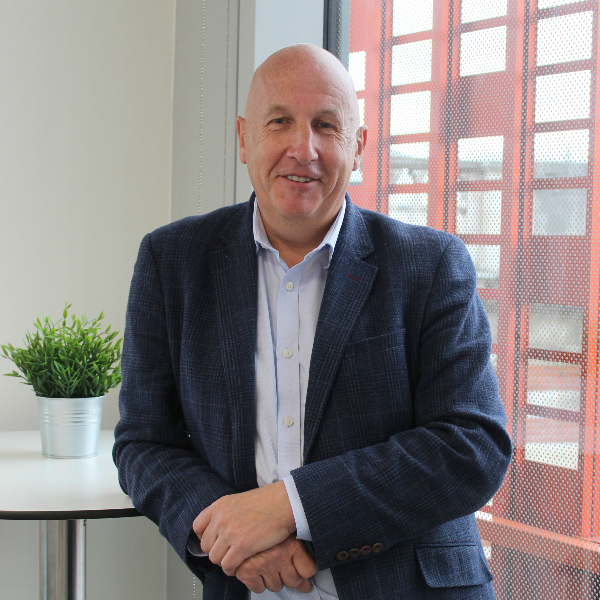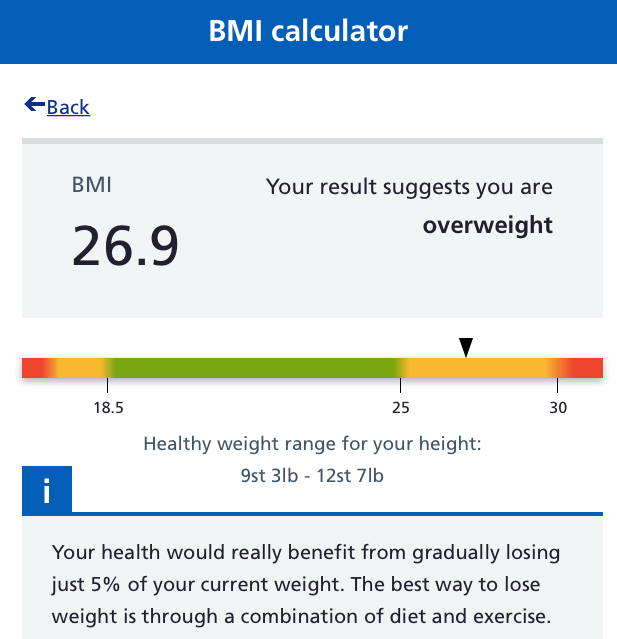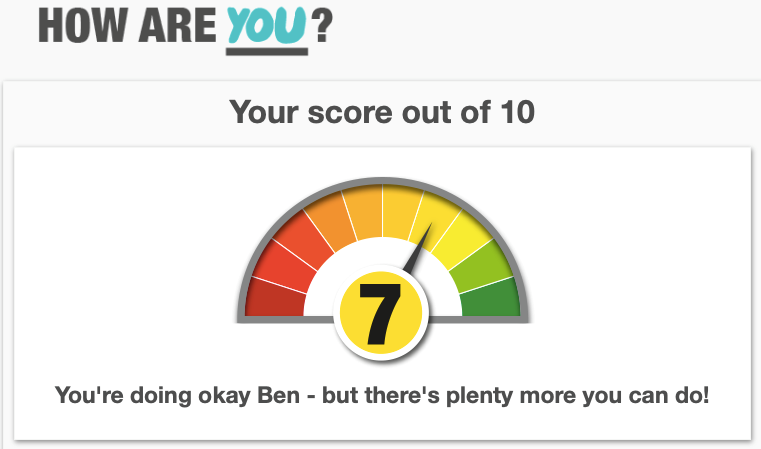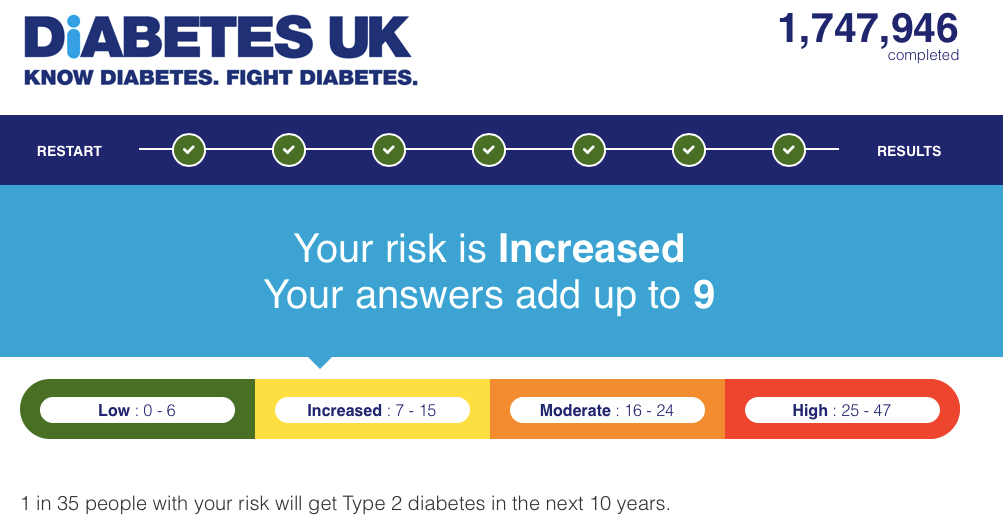Professor Ben Bridgewater: Can I become digitally empowered to improve my own health?

In the first in a new series of blogs, our Chief Executive Professor Ben Bridgewater explores how he can become empowered to improve his own health by using digital tools and easily accessible online information.
There is a lot of talk about healthcare and empowering the patient. It is written through the NHS Long Term plan and is a key global theme, with the underlying principle being that the IT revolution and increasing connectivity through smart phones is empowering people to engage in new ways with banking, retail and transport, so surely it should be the same for health. As we start 2020, with all those positive new year’s resolutions knocking about, it seems a good time to be thinking about this from a personal perspective.
A useful management consultancy framework for looking at this type of challenge starts with why and then moves through the what and the how. The why for empowering citizens to take charge of the health and wellness is clear – over most of the planet citizens have a high burden of disease and the incidence of many illnesses caused by lifestyle factors are increasing. This is placing an unsustainable financial and workforce burden on healthcare systems. And health and care services can only do so much – to get better outcomes the individual needs to take responsibility. The what and the how of empowering citizens are much less certain.
As CEO of Health Innovation Manchester I am responsible for driving innovation towards the needs of the population of the 2.8M citizens of Greater Manchester. But I am not sure that I am as good as I should be about driving innovation into my own health and wellness needs. I now intend to do so, and I will blog about what I am doing to and how I am doing it, for the most part using digital tools, through a series of blogs over coming weeks. I have set some principles for this, the first being that I want to use free and easily accessible tools as much as possible. I want to avoid getting enrolled into overt marketing campaigns, and finally I want to put a thin layer of science, logic and credibility over the forest of things which are available on the internet.

Why do I particularly need to do something?
I am 56 now and feel fairly fit and strong in general.
I have had a few illnesses in the past but nothing major. The only time I have had off from work in the last 20 years was when I suffered a fall, fractured my spine and had a head injury, but all is OK from that perspective now. I do some exercise, but not as much as I should, I hardly drink any alcohol, and have never smoked.
But I am overweight – I am 5’10’’ tall 13 stone 6 giving me a body mass index of 26.9. I found this by using the NHS online tool.
This suggests I need to lose about 9 lbs and to do so it recommends I eat between 2052 and 2638 kcal a day and to lose 1 to 2 lbs per week I need to stick to the lower end of this target calorie range.
So apart from being a bit overweight, how is the rest of me?

I have then gone to the NHS “How Are You?” wellness online calculator which tells me I am doing OK, scoring 7 out of 10, with the results suggesting my major area of focus should be my eating choices and doing more strengthening exercises.
Strengthening exercises seems fair enough I suppose, I am certainly not as strong as I was (who is once they are over 50?) and doing some reading about healthy ageing seems to indicate that focussing on strength, balance and flexibility whilst in your 50s can pay dividends in later life. My octogenarian mother has recently fallen and fractured her hip so I know what a major incident that can be and any action to decrease that risk must be good.
So why is my weight a concern? We know that the number of people with diabetes in the UK has more than doubled since 1996 the prevalence is continuing to rise – and it is type 2 diabetes which is the problem, with obesity the major risk factor.

And we know many people with diabetes are not yet diagnosed. To get a personal assessment of my own risk I have used the Diabetes UK risk app.
This gave me an increased risk of Type 2 diabetes, with a score of 9 (out of 47 so not too bad), but my risk is increased – it gives me a 1 in 35 risk of suffering type 2 diabetes in the next 10 years. Looking in more detail at the risk algorithm, the only risk factor I can modify is my weight, and if I get my BMI index down to normal my risk score drops to 6 (which is in the low category). That gives me a target weight of 12st 6 lbs which would decrease my risk of getting diabetes to 1 in 100.
By the way, I have spent some time in my professional life developing risk prediction tools and I know their limitations – as the saying goes all models are wrong but some are useful. I would certainly put this online calculator into the useful category.
But I want to take a bit more care on this one. In my career as a cardiac surgeon I saw far too many people suffering with the complications of diabetes, so I have looked for the risk factors for pre-diabetes as well. Pre-diabetes is defined as abnormal sugar metabolism which does not reach the threshold for a diagnosis of diabetes. Risk factors include being overweight (which I am) or obese (which I am not), having a close relative with diabetes (no), having a high blood pressure, low HDL or high triglycerides (I don’t think so), being over the age of 40 (yes) or having given birth to a baby who weighed over 9 lbs (definitely not).
The way to get a definitive a definitive diagnosis of pre-diabetes is to measure your blood glucose either through a fasting plasma glucose test or an HBA1c tests – which indicates your blood glucose control over recent weeks.
So the next stage on my health and wellness empowerment journey is to get myself kitted up to measure my glucose level and think harder about my diet. More on that in the next blog.


